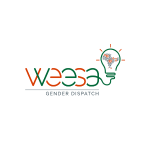

Women’s Economic Empowerment in South Asia (Hosted by SAR GIL)
Tags
- Women’s Groups (20)
- Gender-based Violence (17)
- Implementation Completion Report (ICR) (15)
- Measurement (10)
- Leadership (18)
- Afghanistan (13)
- Social Norms (8)
- Infographics (9)
- Transportation (10)
- Green Transition (6)
- Toolkits (10)
- Pakistan (17)
- Energy (10)
- Jobs (43)
- Self-help Groups (12)
- Infrastructure (7)
- Agriculture (12)
- Social Protection (12)
- Digital Inclusion (16)
- Nepal (7)
- Private Sector (14)
- Care Economy (10)
- Agency and Self-efficacy (4)
- Bhutan (2)
- Sri Lanka (5)
- Podcast (17)
- Operational Documents (20)
- India (23)
- Assets and Resources (14)
- Bangladesh (19)
- Maldives (1)
- Climate Change (18)
- Entrepreneurship (19)
- Financial Inclusion (10)
- Policies and Legislation (14)
- Male Engagement (7)
- Gender Budgeting (7)
- Implementation Completion Report Review (ICRR) (5)
- Education and Skills (22)
Documents
Adolescence in the Time of COVID-19: Evidence from Bangladesh
This note examines the effects of COVID-19 and subsequent economic and educational disruptions on adolescent well-being in Bangladesh. The analysis is based on data from 2,095 in-school adolescents aged 10–18
Effects of a Multifaceted Education Program on Enrollment, Learning, and Gender Equity: Evidence from Rajasthan, India
The Sustainable Development Goals set a triple educational objective: improve access to, quality of, and gender equity in education. This note documents the effectiveness of a multifaceted educational program pursuing
Women's Economic Empowerment: What Do We Know About Interventions to Increase Women’s Economic Participation and Empowerment in South Asia? Skills and Training Interventions
The World Bank’s South Asia Region Gender Innovation Lab is conducting a systematic review and meta-analysis of interventions with direct or indirect effects on measures of women’s economic empowerment. The
Facilitating the School to Work Transition of Young Women (2022)
In Latin America and the Caribbean (LAC), the school-to-work transition is more challenging for girls than boys due to societal norms. Young women who drop out of school are more
Small Business Training to Improve Management Practices in Developing Countries: Reassessing the Evidence for “Training Doesn’t Work” (2020)
This paper revisits and reassesses the evidence for whether small business training works, incorporating the results of recent studies. A meta-analysis of these estimates suggests that training increases profits and
Adapting Skills Training to Address Constraints to Women's Participation (2020)
This Jobs Solutions Note identifies practical solutions for development practitioners to design and implement skills training programs that improve outcomes for women, providing key lessons, solutions and approaches synthesized from
Five Ways to Make Skills Training Work for Women (2020)
Women are less likely to work for pay and make less when they do. One way to close the gender “jobs gap” is through skills training, but obstacles – social
Which Socio-Emotional Skills Matter Most for Women’s Earnings? New Insights from Sub-Saharan Africa (2023)
This Africa Gender Innovation Lab summary study of almost 42,000 respondents in 17 African countries concludes that trainings on interpersonal skills could potentially benefit women more than men. Some intrapersonal
Building an Equitable Future? BRAC’s STAR Program and Young Women’s Economic Empowerment in Bangladesh (2023)
While skills development programs can improve labor market outcomes for women in highly gendered societies in the short-term, they tend to dilute over time by strongly-held restrictive norms and practices.
Bridging Data Gaps to Illuminate and Eliminate Violence Against Children in School (2023)
It is time to get serious about measuring violence in schools, as this recent blog (and working paper) argues. Being able to answer questions about rates of violence is an